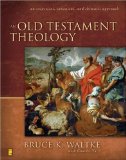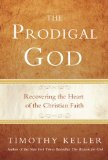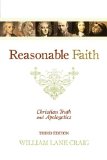Craig Blomberg has recently written a book review of N.T. Wright’s book, “Justification.” You may find the shorter review here, and a longer, scholarly review here. The book under review is the latest in a series of exchanges that are best known to be between Wright and John Piper. The exchanges concern the proper Biblical understanding of justification, and the consequences of said interpretation. Even if you are not well acquainted with the debates over what is called the “New Perspecitve” on Paul (I am only lightly read on them myself), I think you will find Blomberg’s review helpful and insightful, per his custom.
Blomberg on Wright on Justification
Wednesday, July 15, 2009 by bmarchio
Posted in book review | Tagged craig blomberg, John Piper, justification, N.T. Wright | 4 Comments
4 Responses
Leave a comment Cancel reply
-
Recent Posts
Recent Comments
- Sixto Enriquez Rivera on Whatever Happened to the Tribe of Simeon?
- Sixto Enriquez Rivera on Whatever Happened to the Tribe of Simeon?
- Douglas Adamson on The 12 Tribes in Revelation 7
- What is the purpose of a Sermon? Part 2 - Church Planters' Workshop on What Is the Purpose of a Sermon?
- Kevin on The Widow and Her Two Coins: Praise or Lament?
Categories
- 1 Corinthians
- 1 John
- 1 Kings
- 1 Peter
- 1-2 Samuel
- 2-3 John
- 5.5 Random Things
- Acts
- Apologetics
- Baptism
- Bible
- Bible Scholars
- Bible Translations
- book review
- Christian Carnival
- Christianity and Culture
- church history
- church life
- Church Planting
- Current vents
- Ephesians
- Ethics
- evangelicalism
- Evangelism
- Ezekiel
- family
- Galatians
- Genesis
- Gospels
- Hebrews
- hermeneutics
- Holy Spirit
- housekeeping
- humor
- hymns
- Isaiah
- James
- Jesus
- Job
- John
- Joshua
- links
- Luke
- Mark
- Matthew
- Missions
- movies
- music review
- NT Theology
- Old Testament
- Pentateuch
- personal
- Philemon
- prayer
- preaching
- Proverbs
- Psalms
- Rants
- Resource of the Month
- Revelation
- Romans
- Sermon on the Mount
- Sermons
- Sexuality
- theodicy
- theology
- Uncategorized
- Worship
- 1 Corinthians Apologetics Ben Witherington Bible translation biblical theology Biblical Training Bob Kauflin book review Books Bruce Waltke Christmas Christopher Wright church church history commentaries context is king covenant craig blomberg Craig Keener culture D A Carson David Douglas Moo Douglas Stuart Easter evangelicalism Evangelism exegesis Films G K Beale Gordon Fee Grant Osborne hermeneutics historical background Holy Spirit humor hymns idolatry Jim Hamilton J I Packer John Piper Knowing God Law Michael Bird missions music N.T. Wright narrative OT Theology Pauline Theology persecution Peter O'Brien philosophy prayer Resources for Ministry resurrection Revelation Richard Bauckham Romans 8 sacraments salvation Salvation Belongs to Our God sermon sin sojourn Stephen Nichols suffering theodicy theology The Shack Tim Keller TNIV We Become What We Worship William Lane Craig Worship
blogroll
- Ben Witherington
- Better Bibles Blog
- Bill Mounce
- Craig Blomberg
- Darrell Bock
- Don't Stop Believing
- Euangelion
- Every Thought Captive (GCTS)
- For His Renown
- I Can’t Believe It’s Not a Real Blog!
- Jesus Creed
- Kingdom People
- Koinonia
- Larry Hurtado's Blog
- Parableman
- Parchment & Pen
- Primetime Jesus
- Seeking the Truth
Church History & Archaeology
Missions
Online Bible Study Helps
Online Biblical & Theological Studies Articles
- Beginning with Moses
- Best Commentaries
- BiblicalStudies.org
- Christ on Campus Initiative
- Craig Keener Resources
- Denver Journal (Denver Seminary)
- Discerning Reader
- Douglas J Moo Articles
- Institute for Biblical Research
- JETS Archive
- N T Wright Lectures & Articles
- Reasonable Faith
- Review of Biblical Literature
- Richard Bauckham Essays and Lectures
- Themelios Journal
- Thomas Schreiner Articles
- Tyndale Bulletin
Resources for Ministry
Worship
Archives
- January 2013
- December 2012
- September 2012
- August 2012
- July 2012
- June 2012
- May 2012
- March 2012
- December 2011
- November 2011
- October 2011
- September 2011
- August 2011
- July 2011
- June 2011
- May 2011
- April 2011
- March 2011
- February 2011
- January 2011
- December 2010
- November 2010
- October 2010
- September 2010
- August 2010
- July 2010
- June 2010
- May 2010
- April 2010
- March 2010
- February 2010
- January 2010
- December 2009
- November 2009
- October 2009
- September 2009
- August 2009
- July 2009
- June 2009
- May 2009
- April 2009
- March 2009
- February 2009
- January 2009
- December 2008
- November 2008
- October 2008
- September 2008
Danny is Reading
Brian is Reading











Here is an explanation of Wright from Blomberg. Help me out please on this one – Is Blomberg saying that Wright views the ‘Judgement seat of Christ” as unbiblical (cf. the first quote)? And do you find the alternative explanation (the last quote) plausible?
“… they wind up creating a separate assize for Christians beyond Judgment Day. Thus they imagine eternal rewards creating degrees of status in heaven, based on an even more explicit theology of merit than the one they so rigorously deny applies to “mere” (!) salvation.”
LATER…
“The justified are thus marked out as living to some degree in morally virtuous ways that demonstrate the reality of their experience with Christ. To this degree they can be said, in the final analysis, to be judged favorably on the basis of their works.”
This is Marchionni reading Blomberg reading Wright, so we have three layers of interpretation, with the last interpreter (me) being the least read on the subject matter. In short, keep your salt shaker handy (metaphor! I am not an animist…):
In my limited reading, it seems that Wright rejects the notion that there will be various strata for believers post-Judgement Day based on their works on earth. I don’t think this means that Wright rejects the notion that we will receive rewards for our good deeds here on earth. Does this mean he rejects “the judgment seat of Christ?” We’d really need to flesh out that phrase and define exactly what we mean by it. My gut answer (assumption?) is that he does not. He rather rejects that our good works earn us favor with God, when said favor is bestowed per God’s covenant faithfulness to us as made manifest by Christ’s work on the cross and received by grace through faith.
As to your second question, I’ve always taken Wright on this point to mean that our works here on earth “justify” us in the sense that they evidence our commitment to follow Christ. We our not “justified” by our works in the sense that we are legally declared to be in right standing with God, however. Christ’s work alone makes that possible. So the evidence of our legal justification is found in our works. I do find this plausible.
Does that clarify at all? Now would be a wonderful time for Dr. Blomberg himself to make another guest appearance on this blog, and perhaps clarify what he and/or Wright are saying :)
On a slight tangent, the topic of judgment, especially as pertains to believers, is a pet Bible study project of mine for which I hope to carve out some time in what remains of the summer. Hopefully I can gain a better understanding of this and articulate some of my findings in a post sometime in the future. Hold your breath :)
I haven’t read Wright’s new book yet. I plan to, but I’ve grown a bit weary of the debate, so I haven’t mustered up the energy, but will before too long, I hope.
Wright definitely doesn’t reject the “Judgment Seat of Christ” idea, though as Brian pointed out, we’d have to clarifying what is meant by that. And knowing Wright, he probably has a slightly different definition than everyone else, as is his m.o. I know that Blomberg rejects the notion of varying degrees of reward, or “levels of perfection” (I think that’s the phrase he’s used in the past). He wrote an article on it a while back, but I don’t think I’ve ever read it. I will this year, because the topic comes up enough in our classes at church that I feel like I need a researched answer.
The hardest part to swallow of Wright’s stance on justification is the idea of the final justification on the basis of works. It’s hard, I think, because we’re schooled enough in “salvation terminology” for that not to sound right. But I don’t think he’s saying anything unbiblical here, especially when you consider he’s insisting on Spirit-empowered works.
Thanks for the responses. The possibility of fleshing out the details of this ‘judgment for believers’ intrigues me.
I look forward to hearing any further thoughts.